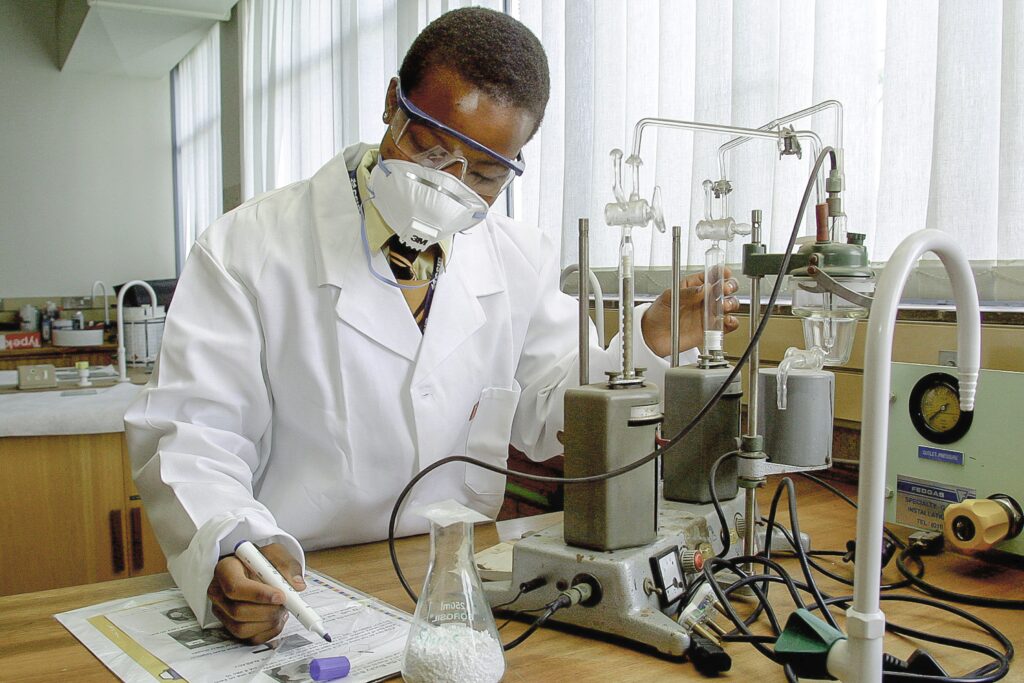Working towards removing barriers for LMIC researchers
“For researchers in Africa, multiple additional layers, some subtle and others not so subtle, and often caused by unconscious bias, introduce yet more barriers (than the usual challenges of publishing in high-impact-factor journals).” From Nature: How to level the global publishing playing field.
At Research4Life, founded over 20 years ago by a group of six publishers, we have been committed to helping bring access to research to low- and middle-income countries(LMICs). Now we have begun to turn our attention to equity for researchers. Our recent blog on the topic explains: “LMIC researchers face multifaceted challenges in gaining equal representation and participation in the global research community. One glaring issue is the limited presence of these researchers as authors, reviewers, and editors in international academic journals. Additionally, they are often marginalized when it comes to assuming key roles, such as speakers, committee members, and leaders in academic and professional societies.” In the Nature Index 2023 North–South collaboration, executives and advisors from Science for Africa, and researchers from Senegal, Cambodia, Nepal, and Haiti, provide additional examples of the obstacles that LMIC researchers face – as well as a path towards equity.
True equity addresses the behind-the-scenes scenarios
Tom Kariuki and Elizabeth Marincola from Science for Africa demonstrate the situation that a researcher from resource-limited setting may find themselves in – they work hard to research a paper only to find out that it has not been impressive enough because colleagues doing similar research in a resource-rich environment simply have “more”. This includes: more researchers in their team, a more high-end facility, and more access to specialists, all factors which come together to get the “big ‘splashy’ results” that certain journals require. Balla Diop Ngom, a Nanomaterials physicist at Cheikh Anta Diop University in Dakar, Senegal, described how he was able to combat not having more resources by setting up a memorandum of understanding (MOU) between his university and the National Institute of Scientific Research in Montreal, Canada, “to access facilities such as high-resolution electron-microscopy equipment and X-ray diffraction technology”. He also was able to get funding from Canada’s International Development Research Centre. While an incredibly innovative solution, not everyone has this sort of access to an international network. Kariuki and Marincola offer a different solution altogether, and essentially want to take down the whole idea of elitism, and give power back to the researchers. How? One can stop needing to attract journals, just because they are “high impact factor” journals. They say don’t give into the “tyranny of the impact factor” advising that “research leaders and administrators must strip journal titles from CVs when considering candidates for grant funding, hiring, awards or promotion.”
Making research truly accessible means disrupting the norm
Kariuki and Marincola explain that “African researchers are much less frequently invited to review manuscripts by selective journals”, which is problematic as peer review experience is a building block for being a successful researcher, as it “allows an early chance to view new findings and gives researchers an insight into how peer review works, for when they submit their own papers”. Ngom adds another common practice that often leads to exclusion and preferential treatment of researchers from affluent countries, the typical location of major scientific conferences. These conferences are valuable for both necessary collaboration and self-promotion, and Ngom points out that “scientists in developing countries don’t have grants to travel”. So he recommends that the events industry re-think where high-level scientific meetings are being held, and consider holding them in Africa.
Future proofing is key
Another major issue that well meaning funders may not always think about is the idea that any funding in a country that struggles with resources needs to be future proof. Savouern Soum, a PhD student in applied ecology and management at the Royal University of Phnom Penh, Cambodia, shared a heartbreaking story about how money was set aside for equipment, but then that equipment ended up being unused after either a project ended or the student graduated.
Coming together for solutions
At Research4Life, our organization has a wealth of colleagues with various expertise, from publishers to UN colleagues to our researcher users, librarians, and Country Connectors. Our Equity Committee will use that expertise to work to help drive equity for researchers everywhere. Some examples of the focus of the Committee include: developing guidelines and an action plan for full representation across editorial and society roles; identifying recruitment best practices for key roles in publishing and society activity; sourcing case studies of successful practice, e.g. waived member fees or travel grants for researchers in LMICs; developing outputs for community engagement, for example a Campaign for Equity for researchers in underrepresented regions; and reviewing and discussing options for transparency, clarity and alignment/standardization of different forms of open access as well as recommend good practices. Learn more about the Equity Committee here.
Discover Research4Life
Research4Life provides institutions in lower income countries with online access to academic and professional peer-reviewed content. Find out how to get access. Already a user? Discover our Training page, and find free resources to make the best use of Research4Life and improve your research skills.






